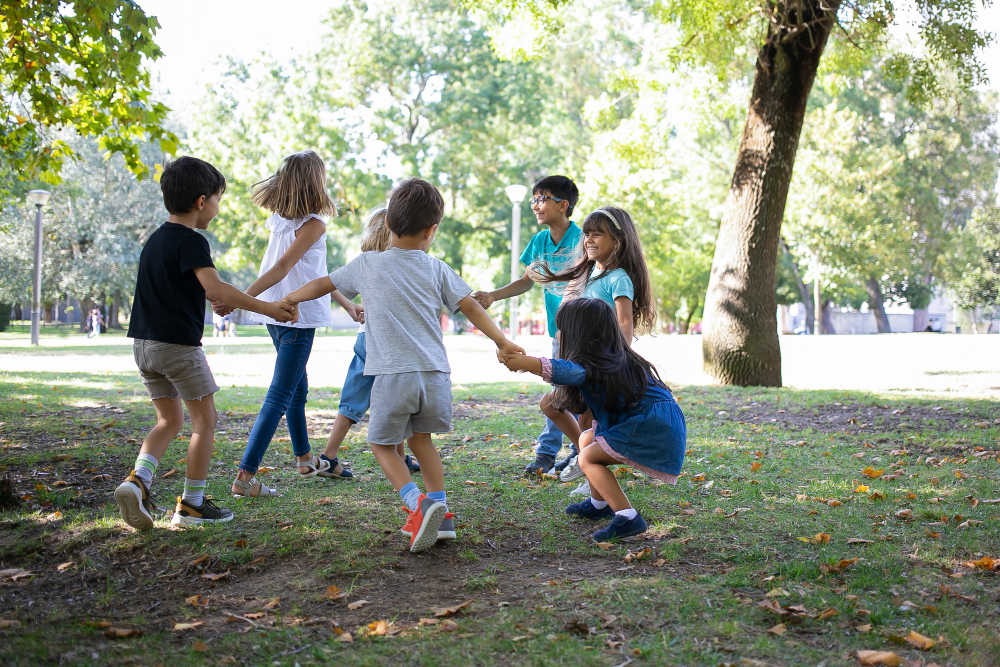Introduction to Nature Therapy
What is Nature Therapy?
Nature therapy, also known as ecotherapy, involves engaging with the natural environment to promote mental and physical well-being. It encompasses activities like hiking, gardening, and simply spending time outdoors.
The Growing Popularity of Nature Therapy
As modern life becomes increasingly stressful and screen-dominated, people are turning to nature therapy to find balance. The benefits of spending time in nature are well-documented, making it a popular choice for those seeking a holistic approach to health.
Mental Health Benefits of Nature Therapy
Reducing Stress and Anxiety
Spending time in nature significantly reduces stress and anxiety levels. The calming effects of natural environments can lower cortisol levels and help people feel more relaxed.
Improving Mood
Nature therapy has been shown to improve mood and reduce symptoms of depression. Exposure to natural light and fresh air can increase serotonin levels, which boosts happiness.
Key Point 1: Nature therapy can dramatically improve mental health by reducing stress and boosting mood.
Physical Health Benefits of Outdoor Activities
Enhancing Physical Fitness
Engaging in outdoor activities like hiking, biking, and swimming improves physical fitness. These activities provide a full-body workout and promote cardiovascular health.

Boosting Immune Function
Regular exposure to nature boosts immune function. Fresh air, sunlight, and physical activity strengthen the immune system, making the body more resilient to illnesses.
Cognitive Benefits of Spending Time in Nature
Enhancing Creativity
Nature therapy enhances creativity and problem-solving skills. The peaceful environment and lack of distractions allow the mind to wander and generate new ideas.
Improving Focus and Concentration
Spending time in nature improves focus and concentration. Natural settings provide a restorative environment that helps recharge cognitive functions.
Key Point 2: Nature therapy boosts cognitive abilities by enhancing creativity and improving focus.
Emotional Benefits of Outdoor Activities
Building Resilience
Engaging in outdoor activities helps build emotional resilience. Overcoming physical challenges in nature fosters a sense of accomplishment and confidence.
Promoting Mindfulness
Nature therapy encourages mindfulness and present-moment awareness. The sensory experiences of nature—sights, sounds, and smells—help ground individuals in the present.
Social Benefits of Group Outdoor Activities
Strengthening Relationships
Participating in outdoor activities with others strengthens relationships. Shared experiences and teamwork foster deeper connections and improve social bonds.
Encouraging Social Interaction
Nature therapy provides opportunities for social interaction. Group hikes, community gardens, and outdoor sports bring people together and promote a sense of community.
Key Point 3: Outdoor activities enhance social connections and foster community engagement.
Nature Therapy for Children
Enhancing Development
Spending time in nature enhances children’s development. Outdoor play promotes physical, cognitive, and emotional growth.

Encouraging Imagination
Nature therapy encourages imagination and creativity in children. Natural environments provide endless opportunities for imaginative play and exploration.
Benefits of Nature Therapy for Seniors
Promoting Physical Activity
Outdoor activities promote physical activity in seniors, helping them maintain mobility and independence.
Enhancing Mental Health
Nature therapy improves mental health in seniors, reducing feelings of loneliness and boosting mood.
Key Point 4: Nature therapy supports the health and well-being of individuals across all age groups.
Nature Therapy and Spiritual Well-Being
Connecting with Nature
Spending time in nature fosters a deep sense of connection with the natural world. This connection can enhance spiritual well-being and provide a sense of purpose.
Finding Peace
Nature therapy offers a peaceful environment for reflection and meditation. The tranquility of nature helps individuals find inner peace and clarity.
Environmental Benefits of Outdoor Activities
Promoting Environmental Awareness
Engaging in outdoor activities promotes environmental awareness. Experiencing nature firsthand fosters a greater appreciation for the environment and encourages sustainable behaviors.
Supporting Conservation Efforts
Nature therapy often involves participating in conservation efforts, such as tree planting and clean-up activities. These actions contribute to environmental preservation and protection.
Key Point 5: Nature therapy not only benefits individuals but also supports environmental conservation.
Practical Tips for Incorporating Nature Therapy into Your Life
Start Small
Incorporate nature therapy into your daily routine by starting small. Take short walks in your neighborhood, visit a local park, or spend time in your garden.
Plan Regular Outdoor Activities
Schedule regular outdoor activities to ensure consistent engagement with nature. Plan weekend hikes, beach trips, or outdoor sports with friends and family.
Nature Therapy for Stress Relief
Practicing Forest Bathing
Forest bathing, or shinrin-yoku, is a Japanese practice that involves immersing oneself in a forest environment. It reduces stress and promotes relaxation.
Engaging in Water Activities
Water activities like swimming, kayaking, and paddleboarding are excellent for stress relief. The soothing effect of water enhances relaxation and mental well-being.
Nature Therapy for Physical Fitness
Hiking and Walking
Hiking and walking are simple yet effective ways to improve physical fitness. These activities provide a full-body workout and can be adapted to different fitness levels.
Biking and Running
Biking and running offer excellent cardiovascular benefits. These activities improve stamina, strengthen muscles, and promote overall health.
Nature Therapy for Mental Clarity
Practicing Meditation Outdoors
Meditation in natural settings enhances mental clarity. The serene environment helps quiet the mind and fosters deep relaxation.
Journaling in Nature
Journaling in nature can boost mental clarity and self-awareness. Writing down thoughts and reflections while surrounded by nature provides a fresh perspective.
Nature Therapy for Creative Inspiration
Artistic Activities Outdoors
Engage in artistic activities like painting, drawing, or photography outdoors. The natural environment provides endless inspiration for creativity.
Writing in Natural Settings
Writing in natural settings can stimulate creativity. The tranquility and beauty of nature can help generate new ideas and enhance writing quality.
Nature Therapy for Emotional Healing
Practicing Mindfulness in Nature
Mindfulness practices in nature promote emotional healing. Focusing on the present moment and sensory experiences helps release negative emotions.
Participating in Outdoor Group Activities
Outdoor group activities provide emotional support and foster a sense of belonging. Sharing experiences with others enhances emotional well-being.
Nature Therapy for Social Connection
Group Hikes and Walks
Group hikes and walks are excellent for social connection. These activities provide opportunities to meet new people and strengthen existing relationships.
Community Gardens
Community gardens foster social interaction and cooperation. Working together in a garden promotes a sense of community and shared purpose.
Nature Therapy for Children’s Development
Outdoor Play and Exploration
Outdoor play and exploration are vital for children’s development. These activities enhance physical fitness, cognitive skills, and emotional resilience.
Educational Nature Activities
Educational activities like nature scavenger hunts and wildlife observation teach children about the natural world and promote environmental awareness.
Nature Therapy for Seniors’ Well-Being
Gentle Outdoor Exercises
Gentle exercises like tai chi and yoga in nature promote physical health and relaxation for seniors. These activities enhance flexibility and reduce stress.
Social Nature Activities
Social activities like gardening clubs and nature walks provide social interaction and mental stimulation for seniors, reducing feelings of isolation.
Nature Therapy for Spiritual Growth
Practicing Yoga in Nature
Yoga in nature combines physical exercise with spiritual growth. The natural environment enhances the meditative aspects of yoga, promoting inner peace.
Participating in Nature Retreats
Nature retreats offer opportunities for spiritual growth and self-discovery. These retreats provide a break from daily life and a chance to connect deeply with nature.
Environmental Stewardship through Nature Therapy
Volunteering for Conservation Projects
Participate in conservation projects to support environmental stewardship. Activities like tree planting and habitat restoration benefit the environment and provide a sense of fulfillment.
Educating Others about Nature Conservation
Educate others about the importance of nature conservation. Sharing your experiences and knowledge can inspire others to engage in sustainable practices and protect the natural world.
Key Points Summary
- Nature Therapy for Mental Health: Reduces stress and improves mood.
- Physical Benefits: Enhances physical fitness and boosts immune function.
- Cognitive Boost: Increases creativity and improves focus.
- Social Connections: Strengthens relationships and fosters community.
- Environmental Stewardship: Promotes conservation and environmental awareness.
Conclusion:
Embracing the Outdoors for a Healthier, Happier Life
Spending time in nature and engaging in outdoor activities offer numerous benefits for your mental, physical, emotional, social, and spiritual well-being. Nature therapy is a powerful, holistic approach to improving overall health and promoting a sense of balance and harmony in life. By incorporating more outdoor activities into your routine, you can experience the profound positive effects that nature has to offer.
Whether you’re taking a simple walk in the park, participating in a community garden, or embarking on a hiking adventure, the key is to make regular, meaningful connections with the natural world. Remember, every small step counts, and each moment spent in nature contributes to a healthier, happier you.
FAQ’s:
What is nature therapy?
Nature therapy, or ecotherapy, involves engaging with the natural environment to promote mental and physical well-being.
How does nature therapy reduce stress?
Nature therapy reduces stress by providing a calming environment, lowering cortisol levels, and promoting relaxation.
Can spending time in nature improve mood?
Yes, spending time in nature can improve mood by increasing serotonin levels and reducing symptoms of depression.
What are some outdoor activities that enhance physical fitness?
Activities like hiking, biking, and swimming enhance physical fitness by providing a full-body workout and promoting cardiovascular health.
How does nature therapy boost creativity?
Nature therapy boosts creativity by providing a peaceful environment that allows the mind to wander and generate new ideas.
What are the social benefits of group outdoor activities?
Group outdoor activities strengthen relationships, encourage social interaction, and foster a sense of community.
How does nature therapy benefit children’s development?
Nature therapy enhances children’s physical, cognitive, and emotional development through outdoor play and exploration.
Can seniors benefit from nature therapy?
Yes, seniors benefit from nature therapy through improved physical activity, enhanced mental health, and reduced feelings of loneliness.
How does nature therapy support spiritual well-being?
Nature therapy supports spiritual well-being by fostering a deep connection with the natural world, enhancing inner peace, and providing opportunities for meditation and reflection.
How can I start incorporating nature therapy into my life?
Start by spending small amounts of time outdoors, plan regular outdoor activities, and engage in practices like hiking, forest bathing, and outdoor meditation.





